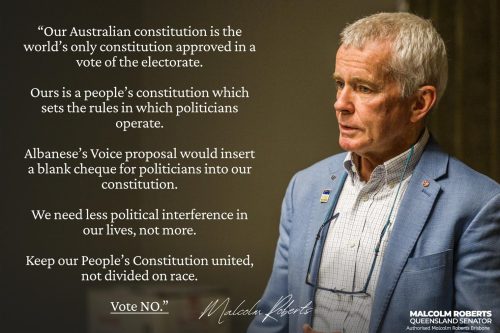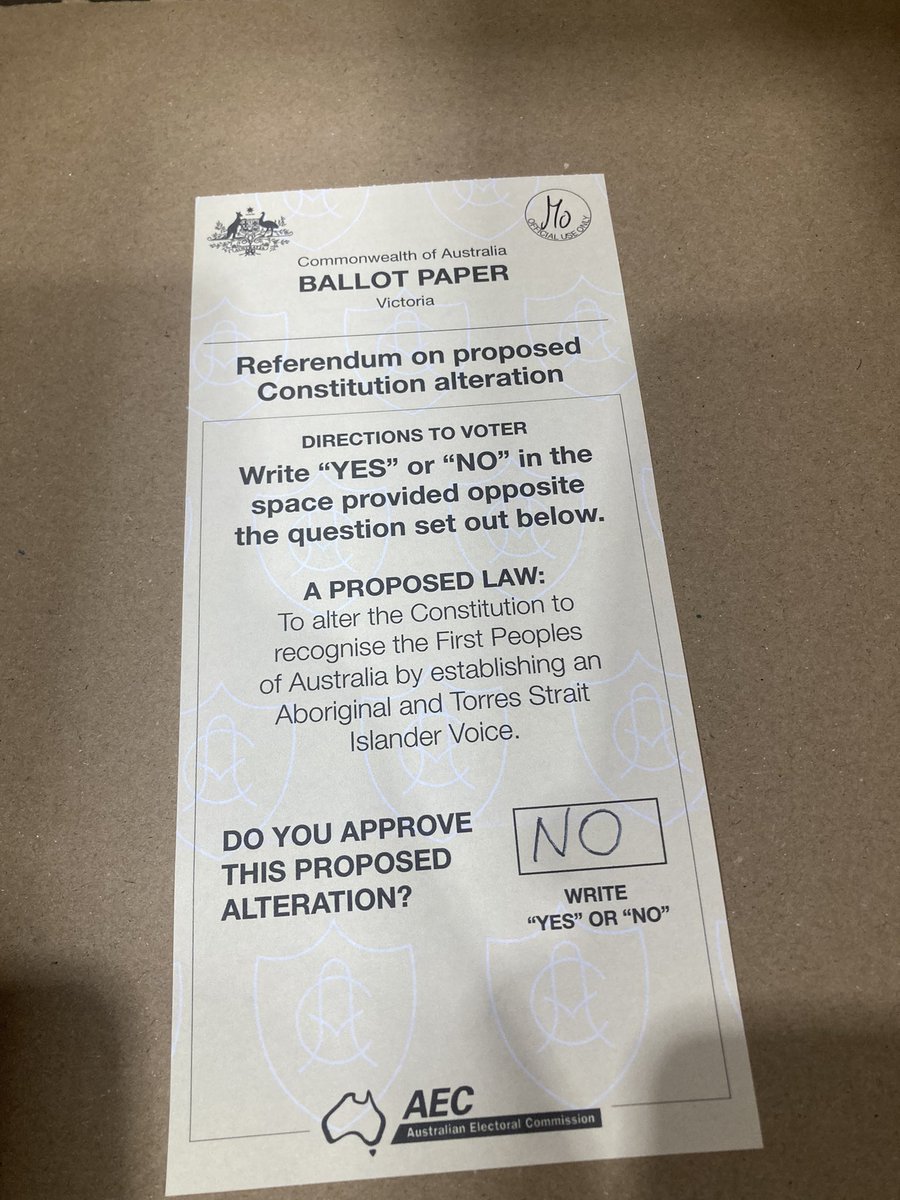Australians have just rejected a plan to divide them by race. The defeat of a referendum that would have created “an advocacy committee to offer advice to Parliament on policies (the ‘Voice’) that affect indigenous people” has split the country.
Those who see no difference between Australians, native, descended or recent arrival voted “No” to the suggestion that one “race” should be different from another. It is a simplified version of saying no to Apartheid. The YES Vote for the Voice was the lowest vote ever in an Australian referendum.

Australians have just rejected a plan to divide them by race. The defeat of a referendum that would have created “an advocacy committee to offer advice to Parliament on policies (the ‘Voice’) that affect indigenous people” has split the country.
Those who see no difference between Australians, native, descended or recent arrival voted “No” to the suggestion that one “race” should be different from another. It is a simplified version of saying no to Apartheid. The YES Vote for the Voice was the lowest vote ever in an Australian referendum.
Over 80% of Aboriginal and Torres Strait Islander people support the Voice.
— Yes23 (@yes23au) October 8, 2023
On October 14, walk alongside us and vote Yes.#yes23 pic.twitter.com/2wfuDN7m0q
NO
- It’s symbolic, and fixing systemic issues facing Indigenous communities would require a body with actual power.
- More bureaucracy will not help Indigenous Australians in disadvantaged communities to close the gap and achieve reconciliation.
- Governments can ignore its advice if they don’t like what it tells them.
- No issue is beyond its scope.
- The Voice adds race to the constitution, and enshrining a body for only one group means permanently dividing Australians.
- Australians are being asked to sign a blank cheque, given key details about how the Voice would operate will be decided after the referendum.
- Because the Voice will be designed by parliament, future governments could change or sideline it.
- It will be a first step to more radical changes like financial reparations for colonisation and dispossession.
- It would be costly and bureaucratic – an additional fiscal burden on top of existing Aboriginal and Torres Strait Islander representative bodies.
- Indigenous people already have a voice via an unprecedented level of Indigenous representation in parliament.
- Truth and Treaty should come before the Voice.
Australians wisely vote ‘No’ to aboriginal ‘Voice’ amendment. The grievance-industrial complex always starts with innocent-sounding legal phrases which are then weaponized by administrative activists. Don’t get fooled again. https://t.co/qUrzS82eZ2
— Eric Kaufmann (@epkaufm) October 15, 2023
At the end of the day, the No vote had it. The further one went from the inner cities, the bigger the No majorities became. In fact, just about the only seats to vote Yes were those held by rich, greenie women. and the very liberal capital Canberra.
Prime Minister Anthony Albanese had pinned his colours to this campaign and it now remains to be seen whether he can hang on to his position. It is interesting to note that Labour (left wing) in New Zealand was severely beaten in the General Election last week. After the draconian period of the pandemic lockdowns, maybe enough was enough for the easy-going Aussies and Kiwis?
